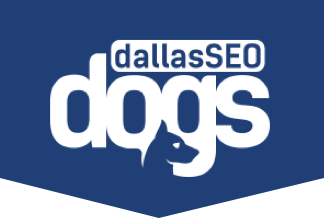PPC Terms You Need To Know

Pay-Per-Click advertising (PPC) has become a cornerstone for businesses seeking to reach their target audiences effectively. But with its rapid evolution comes a wave of acronyms and jargon that can leave even seasoned marketers feeling a bit overwhelmed…
But fear not! This comprehensive guide will navigate you through the labyrinth of PPC terminology, ensuring you’re equipped to make informed decisions and achieve your marketing goals. Read along to discover everything you need to know about PPC — and how to make it count.
1. PPC (Pay-Per-Click)
Let’s start with the basics. PPC, or Pay-Per-Click, is an online advertising model where advertisers pay a fee each time one of their ads is clicked. It’s essentially a way of buying visits to your site, rather than attempting to “earn” those visits organically through SEO or other methods.
2. Keywords
In the realm of PPC, keywords (sometimes also called keyphrases; the terms are used interchangeably by most) are what people type into search engines when they’re looking for information, products, or services. Your PPC campaigns revolve around selecting the right keywords: those that are relevant to your business and have a high search volume.
3. Search Volume
Search volume refers to the average number of times a particular keyword is searched for within a specific period. Higher search volume keywords generally indicate greater potential reach but may also come with increased competition and cost.
4. KW Mentions
KW Mentions simply stands for “Keyword Mentions.” It signifies the number of times a specific keyword appears within your ad copy, landing page, or other relevant content.
5. PPC Marketing
PPC Marketing comprises the entire process of planning, creating, managing and optimizing PPC campaigns to achieve specific marketing objectives.
6. PPC Marketing Agency
A PPC Marketing Agency specializes in providing PPC services to businesses. They typically have a team of experts who can handle all aspects of your PPC campaigns, from keyword research and ad creation to bid management and performance analysis.
7. Pay-Per-Click Advertising
Pay-Per-Click Advertising is synonymous with PPC. It highlights the core principle of this advertising model, where you pay only when someone clicks on your ad.
8. Paid Search
Paid Search refers to the advertisements that appear at the top or bottom of search engine results pages (SERPs). They’re triggered by specific keywords and labeled as “sponsored” or “ad.”
9. Paid Search Marketing
Paid Search Marketing encompasses all activities related to creating, managing, and optimizing paid search campaigns.
10. Paid Search Agency
Similar to a PPC Marketing Agency, a Paid Search Agency specializes in managing paid search campaigns for businesses. They help you achieve visibility on SERPs and drive targeted traffic to your website.
11. Impression
An impression occurs each time your ad is displayed on a search engine results page or other online platform. It doesn’t necessarily mean someone clicked on your ad, only that it was shown.
12. Click-Through Rate (CTR)
CTR is the percentage of people who click on your ad after seeing it. A high click-through rate indicates your ad is relevant and compelling to your target audience.
13. Conversion
A conversion is a desired action a user takes on your website after clicking on your ad. This could be making a purchase, filling out a form or subscribing to a newsletter.
14. Conversion Rate
Conversion rate is the percentage of ad clicks that result in a conversion. It’s a key metric for measuring the effectiveness of your PPC campaigns.
15. Cost Per Click (CPC)
CPC is the amount you pay each time someone clicks on your ad. It can vary depending on factors like keyword competition, ad quality and your bidding strategy.
16. Cost Per Acquisition (CPA)
CPA is the average cost you pay for each conversion. It’s calculated by dividing your total ad spend by the number of conversions.
17. Quality Score
Quality Score is a metric used by search engines like Google to assess the relevance and quality of your ads and landing pages. A higher Quality Score can lead to lower CPCs and better ad positions.
18. Ad Rank
Ad Rank determines the position of your ad on the SERP. It’s influenced by your bid amount and your Quality Score.
19. Ad Group
An ad group is a collection of related keywords and ads within a PPC campaign.
20. Campaign
A campaign is a collection of ad groups that share a common budget, targeting settings and other parameters.
21. Landing Page
A landing page is the specific page on your website that users are directed to after clicking on your ad. It should be relevant to the ad and optimized for conversions.
22. Bid
A bid is the maximum amount you’re willing to pay for a click on your ad.
23. Bidding Strategy
A bidding strategy is the approach you take to determine your bids. There are various bidding strategies available, such as manual bidding, automated bidding, and target CPA bidding.
24. Ad Extensions
Ad extensions are additional pieces of information that can be added to your ads, such as phone numbers, location information or site links. They can improve your ad’s visibility and click-through rate.
25. Remarketing
Remarketing Ads is a strategy that allows you to target ads to people who have previously visited your website or interacted with your brand.
26. Display Network
The Display Network comprises the websites, apps and videos where your ads can be displayed. It offers a wider reach than search ads but typically has a lower click-through rate.
27. A/B Testing
A/B testing involves creating two versions of an ad or landing page and comparing their performance to see which one performs better.
28. Ad Copy
Ad copy is the text that appears in your ad. It should be compelling and include a clear call to action.
29. Call to Action (CTA)
A CTA is a phrase or button that encourages users to take a specific action, such as “Shop Now” or “Learn More,” or maybe something longer, evoking your site or business.
This is an example of a call to action:
Let Dallas SEO Dogs Handle Your PPC Campaign
Navigating the world of PPC doesn’t have to be overwhelming. By familiarizing yourself with these key terms, you’ll be well on your way to mastering this powerful advertising channel. Remember, PPC is a dynamic field, so continuous learning and adaptation are essential.
Ready to take your PPC campaigns to the next level? Dallas SEO Dogs is here to help. Our team of experts can guide you through every step of the process, from keyword research to ad optimization. Contact us today for a free consultation and let’s unlock the full potential of PPC for your business.
